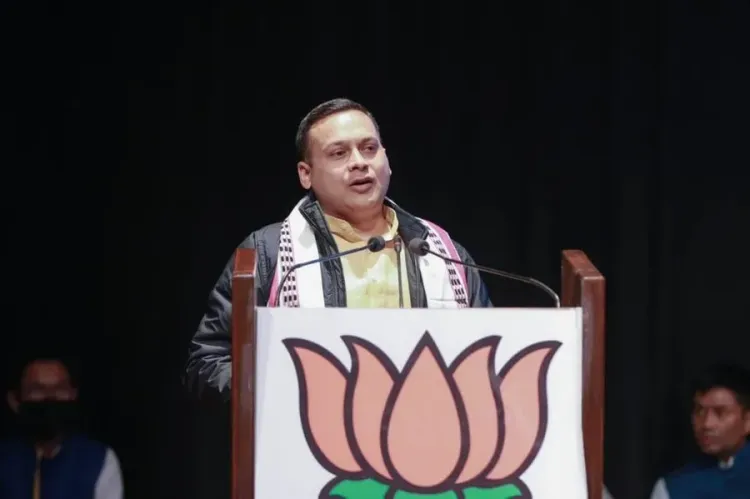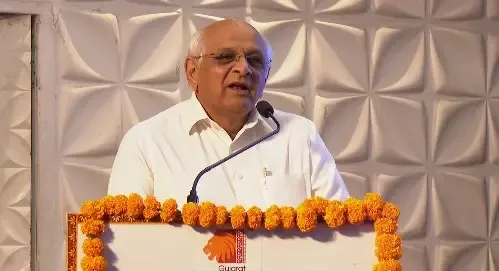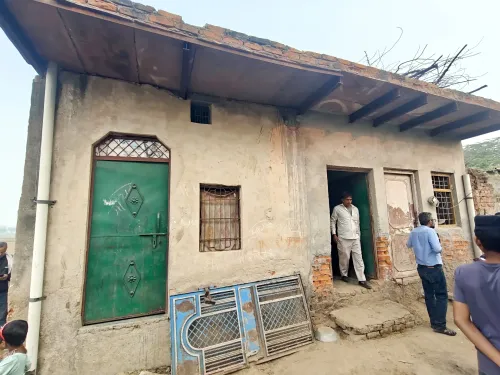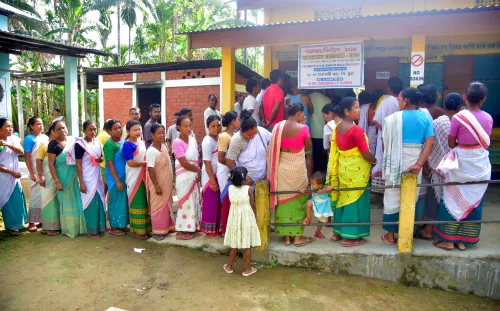Why Did BJP’s Amit Malviya Disagree with P. Chidambaram on Economy?

Synopsis
Key Takeaways
- Amit Malviya challenges Chidambaram's economic views.
- Malviya emphasizes the NDA government's reforms.
- Chidambaram raises concerns about wage stagnation.
- The debate highlights differing economic ideologies.
- Consumer exploitation is a key issue in the discourse.
New Delhi, June 1 (NationPress) BJP leader Amit Malviya criticized former finance minister P. Chidambaram for his negative portrayal of the economy, linking it to alleged wage stagnation and consumer exploitation stemming from insufficient competition in various sectors.
Chidambaram's attempt to take credit for economic reforms during the UPA government was met with skepticism by Malviya, who posted on the social media platform X: “It’s truly pitiful how a former Finance Minister displays such selective amnesia regarding India’s economic journey.”
“To assert that the notion of ‘profit not being a bad word’ originated solely during his administration conveniently overlooks the fact that those reforms, while essential, were merely half-measures compelled by a severe Balance of Payments crisis,” Malviya, who oversees the BJP's National Information and Technology Department, stated.
Earlier, Chidambaram remarked on the platform X, stating: “The acceptance of 'profit' in business as a positive concept became government policy in 1991 when Dr. Manmohan Singh was finance minister.”
“The crucial issue is how profits should be distributed among promoters, shareholders, labor, government, consumers, society, and other stakeholders,” he added.
In response, Malviya argued, “The former Minister discusses profit-sharing but seems to forget the infamous legacy of the UPA era — the ‘Jayanti Tax’, rampant corruption scandals, and a policy paralysis that left India struggling among the ‘Fragile Five.’ Major industries were not just hesitant; they were actively seeking exits. Profit sharing? Under the UPA, profits appeared to be reserved for a select few while genuine entrepreneurship was suppressed.”
The term ‘Jayanti Tax’ is used by the BJP to allege corruption linked to the previous environment minister Jayanthi Natarajan regarding project approvals.
While criticizing Chidambaram, Malviya highlighted the NDA government's key initiatives.
“Programs like MUDRA Yojana and Stand Up India have empowered over 30 crore aspiring entrepreneurs, promoting grassroots prosperity and ensuring that the benefits of growth are shared more broadly than ever envisioned during his tenure. That is real benefit-sharing, not empty rhetoric,” he asserted in his post.
Chidambaram previously commented on the economy, stating, “As the Chief Economic Adviser has repeatedly mentioned, the balance is skewed in favor of capital/promoters and against labor. Wages have stagnated.”
“I would add that due to inadequate competition, consumers are being exploited in several sectors, such as air travel, insurance, and pharmaceuticals,” he concluded.










